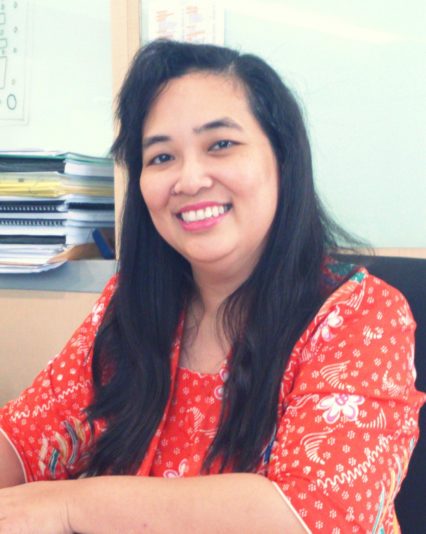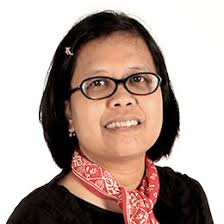Case Document
PT GREAT RIVER INTERNATIONAL TBK (GRIV): THE GREAT INDONESIAN CORPORATE COLLAPSE?
This case provided students an open forum to discuss and analyze the factors and reasons why senior management at a major corporation and a public accountant firm gave false or manipulated financial statements. The case gave an interesting human interest aspect to be considered and values, belief and integrity that leaders and public auditors must have.
The real story asked and provoked students to investigate and questions what were the motives and attitudes that professionals and leaders had around this publicly listed company. The case could be used as a debate forum to find out what are the factors and reasons that lead to the collapse of this corporation or more specifically was there an accounting and/or financial “fraud” involved in the case? What were the causes of this major catastrophic corporate collapse? The failures usually arise from the cumulative effects of many small failures, any of one of which, if detected in time, could have been prevented. Were the many small failures of this corporation being ignored or swept under the “blankets”? Is it correct to judge that in this case, there was a failure of leadership, culture, internal controls, internal audits, and corporate governance? Was the board of directors lying? What types of controls or safeguards that a public listed company or a regulator like Indonesian Capital Market Supervisory Agency (Bapepam: Badan Pengawas Pasar Modal) must have to prevent similar case(s) to happen again?
In our class discussion, many say that the fraud was due solely to bad individuals who have decided to cheat the public and the top management was so brave to issue bonds (to raise public fund) in hind sight of the performance of the corporation. Another proposition could be that the culprit was the economic crisis that happened to this country. Or was it “mis-managed” or it was all about the “greed” or “conspicuous” character of the leaders/professionals.
While many of us think that senior executives always act ethically, legally, and honorably, and market economies must be able to function even when personal greed and ambition motivate executive to step across legal and ethical lines. Greed and ambition are not new phenomena in this country. Is it being too idealist to believe that all senior executives will act to a sainthood or godliness standard? Public corporations and regulators need control mechanisms /laws/regulations that ideally dissuade executives from acting down to their animal instincts, and can also detect as well as prevent rapidly when actual illegal behavior/activities were initiated. If there is no economic crisis in Indonesia, may GRIV still have existed and grown well? If proper and strict organizational and government control systems were in place and also their vital roles and functions were installed, could this not happen?
EXCHANGE TRADED FUND (ETF)- BASED MUTUAL FUND: CASE STUDY OF ASIAN BOND FUND (ABF) MANAGED BY PT BAHANA TCW INVESTMENT MANAGEMENT
Tuesday, December 18th, 2007, marked the new era in the history of Indonesian capital market due to the introduction of a brand new mutual fund in Indonesia called Exchange Traded Fund (ETF). The Fund, known as the Asian Bond Fund ETF - Indonesia Bond Index Fund Bahana TCW (R-ABFII) is sold at the launching date at Rp 13,003 per unit. The benchmark for R-ABFII is the State of Indonesia Bond (SUN) Index published in the form of iBoxx ABF Index, which is managed by an international independent institution based in Frankfurt - Germany: International Index Company (IIC). The Fund is considered to be a very unique and attractive alternative for investment with the credibility as high as the sovereign rating of Indonesia. By investing in the Fund, investors easily get diversified government portfolio. Furthermore, ETF is much more competitive compared to conventional fund, because investor will be charged less brokerage fee. In addition, ETF is the only product which reflects the efficiency level of government bond market in Indonesia. The Fund could be seen be seen as the investment grade equivalent with the sovereign rate of Indonesia. Accordingly, there is a remote possibility that the Fund will be default.”
The case study discusses how a non-traditional Fund compete with the traditional ones during which time local investors prefer to maintain their risk-averse approach in their investment pattern. When originally introduced, regulatory agencies such as Indonesian Stock Exchange (BEI), Bank Indonesia and Bapepam LK are very confident that the product will boost the market because the international support given by the Executives Meeting of East Asia and Pacific Central Banks, or EMEAP. EMAP consists of 11 (eleven) central bank and monetary authority: the Bank of Japan, Bank of China, Bank of Korea, The Reserve Bank of Australia, The Reserve Bank of New Zealand, Hong Kong Monetary Authority, Monetary Authority of Indonesia, Bank of Thailand, Bangko Sentral ng Pilipinas, State Bank of Malaysia, and Bank Indonesia. Whether the support shown by the official regulatory agencies, will in fact, boost the total investment in the product is still uncertain.
Bahana TCW Investment Management is really in a dillematic position when decided to manage the unique fund given a variety of profitable product being offered by the market.
ALTERNATIVE FINANCING OF PT BUMI RESOURCES, TBK.
PT Bumi Resources TbK was the biggest coal producer in Indonesia and the biggest exporter coal thermal in the world (8% market share). The company has engaged to increase coal production capacity for the next 5 years and has obliged to refinance its financial liabilities during its dynamic investor relationship events on 2003-2007.
This case illustrates the company’s financing strategic using financing alternative like issuing bonds, stock price offering and banking loan.
IPO (INITIAL PUBLIC OFFERING) PT ELNUSA
There are several reasons why PT. Elnusa launched its IPO. The main reason seems to be the fact that Elnusa wants to expand its business into marine seismic acquisition, deep well drilling, and testing barge which requires huge capital expenditures especially in equipment procurement. The story reveals the pros and cons arguments around the IPO decision. One could argue, why has to be the IPO and not bond issuance? What is the advantages and disadvantages of IPO and why it is preferable compared to bond issuance. How will the IPO revenue be allocated among the main activities asking for financial support and what is the allocation basis. One main pre-requisite for Elnusa IPO decision is its historic financial performance as shown by the financial statements as well as measured by liquidity, solvability and profitability ratios. It is also worth to be noted that before the IPO, Elnusa merged three of its subsidiaries and consolidated several subsidiaries in order to create Elnusa as the “operational holding” rather than the “strategic holding” . The decision for IPO by Elnusa cannot be separated from the industry environment and prospect where Elnusa is operating. SWOT analysis is used to identify and assess both internal and external factors influencing company present and future performance. The case study concludes that IPO decision has been successful in strengthening Elnusa capital structure to support the revenue-generating activities of core business.
RAISING CAPITAL – PT. KRAKATAU STEEL (PERSERO) ISSUES IN FUNDING THEIR CAPITAL EXPANSION REQUIREMENTS
The Krakatau Steel’s (Persero) management confronted a difficult task in obtaining new capital injection to increase the production target from its current capacity 2,5 MT to 5 MT by year 2013.
The options faced by management are whether KS issues new shares through Strategic Sale (SS) or Initial Public Offering (IPO) mechanism. In this case, both alternatives had their pros and cons. The strategic partner for Strategic Sale mechanism is offered aggressively by ArcelorMittal, foreign steel company, Luxemburg and Indian joint steel company.
The controversy strategic sale issue came to an end in 18 September 2008 when the Indonesia’s Legislator Body or DPR ruled out any strategic sale of KS ownership to foreign parties and that KS’s equity requirements for the planned expansion and enhancement of their facilities would be conducted through an Initial Public Offering (IPO) process.
The IPO of KS confronts a reality of market crash near the end of 2008. While time was an essence as the development project was expected to take 2-3 years, optimizing shareholder’s value by selecting the best choice of source of fund given the current markets was also important. Eventually, proposal from ArcelorMittal for Strategic Sale remains on the table.
CASH MANAGEMENT REVIEW PT. ANEKA TAMBANG TBK (IDX CODE: ANTM)
This case study illustrates how PT Aneka Tambang Tbk (Antam) manages their cash flows. Antam’s cash was held in over 15 local and foreign banks where mainly was placed in time-deposit and the rest was in the form of cash account. This company used their revenue to pay administrative cost, investment and financing activities such as construction cost, repayment of bonds and dividend. However, the high-cost labour and the increasing of wages have adversely influenced the condition of their cash-flow management. At the same time payment to suppliers has also gradually increasing. As a result, Antam’s liquidity decreased although the debt-ratio has shown some improvement and profitability seems to be flat with a tendency to decline.
DEBT RESTRUCTURE: A FINANCIAL TURNAROUND OF PT SIERAD PRODUCE. TBK
It was 1996, when Mr. Budiardjo Tek, the President Director of PT Sierad Produce Tbk (“Sierad Produce / Sierad / The Company”) proudly presented the Company’s achievement, “I am pleased to report that 1996, our first year as a publicly held company, proved to be a highly successful one, with outstanding financial performance recorded across the board. Net revenues for the year amounted to Rp. 454.4 billion (or equal to USD 192.3 million), income from operations totaled Rp. 44.0 billion (or equal to USD 18.6 million), and net income was Rp. 27.1 billion (or equal to USD 11.5 million). With expansion projects now coming on-stream, our poultry feed operation is growing tremendously. Expansion of our feedmill, for example, will result in a tripling of capacity and will allow us to achieve significant economies of scale.”
Not too soon after the situation changed. The Asian monetary crisis beginning in 1997 was sudden and unforeseen. It had been catastrophic for many businesses. All poultry operators – without exception and including the Company – embarked on expansion before the economic crisis in order to take advantage of the excellent prospects of the industry. These expansions were funded in part by new equity issues in the capital markets and in part, through cheap and readily available financing offered by offshore financial institutions. However, due to the profound and lingering effect of the crisis, the consumer purchasing power deteriorated. Rupiah depreciated from its normal rate of Rp. 2.500,- to Rp. 4,500 at year end 1997, soaring to Rp. 17,000 in January 1998 and levelling off at Rp. 10,000 – Rp. 12,000 with much volatility towards end of 1998. At the same time, the poultry industry’s cost of production went up several folds. “More than 80% of feed’s raw materials were imported and therefore, the industry is heavily import-dependent”, said Albert Sitorus, member of Sierad’s management team. Large poultry operators like the Company found themselves with new production facilities, large foreign currency debts, a Rupiah-based revenue stream and worse, over a 50% decline in consumer poultry consumption during the worst period. It was inevitable that the Company would go into default. It was only a matter of time. The Company was unable to pay the USD 313 million debt, which actually was only less than 2 times of its annual revenue before the crisis.
PT INDOSAT TBK. DIVESTMENT PROCESS TO SINGAPORE TECHNOLOGIES TELEMEDIA DID THE GOVERNMENT GET THE RIGHT PRICE?
On 16 December 2002, the Government of the Republic of Indonesia ("Government") declared Singapore Technologies Telemedia Pte., Ltd. ("STT") the winning bidder for the divestment of 41.9% shares of the Government in PT Indonesian Satellite Corporation Tbk. ("Indosat"). STT utilized its subsidiary Indonesian Corporation Limited ("ICL") to purchase the shares. This divestment decision attracted various reactions from the public as well as various institutions within the government.
This divestment process had been long considered by State Minister for the State Owned Enterprise ("Meneg BUMN") a position which was then held by Mr. Laksamana Sukardi, the Minister of Finance ("MoF"), Mr. Boediono, the Indonesian Banking Restructuring Agency ("IBRA") and the Capital Market Supervisory Board ("Bapepam"). To support the divestment process, the Government engaged PT Danareksa Sekuritas and Credit Suisse First Boston ("CSFB") as coordinators for the sale of the shares, particularly as the financial advisor.
One of the reasons the Government decided to dispose of its shares in Indosat was to increase the level of competitiveness of Indosat in the telecommunication sector in Indonesia. Another reason was Indosat’s failure to achieve optimum results despite previous efforts to enhance its performance. However, the main reason was that the MoF had planned to utilize the funds generated by the privatization of State Owned Enterprises (including proceeds from Indosat divestment process) to buy back Recapitulation Bonds from a number of banks.






